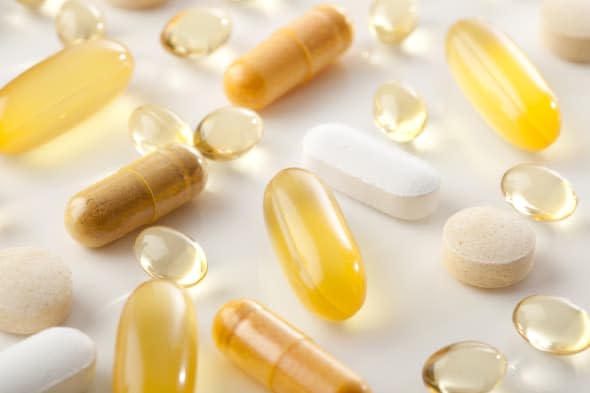Should you be taking glutathione?

Vitamin and mineral supplements have long been available on the shelves of supermarkets and health food stores, and many of us readily snap them up in a bid to keep ourselves fit and well.
Yet how many of us have heard of glutathione? If the name is new to you, here's what you need to know, and why taking a supplement could make difference to your health.
Related Searches
What is glutathione?
Consisting of three amino acids, glutathione is produced by the liver and is one of the body's most important antioxidant, because it can be found in each and every cell. This places it in the unique position of being able to work to neutralise free radicals in cells, boosts the immune system, and can even help to remove unwanted chemicals from the body. Where liver function is not at its best, production of glutathione is reduced, and this can make you susceptible to illness and disease, and the effects of ageing.
What is it used for?
In medicine, glutathione has been used to treat myriad issues where the body's natural levels may be depleted, such as in cancer and Aids, thanks to its ability to boost the immune system. Its detoxifying effect is also thought to be effective for protecting those who are undergoing cancer treatments such as chemotherapy. Though it is typically administered intravenously or via an injection in medicine, oral supplements have been around for a while. However, they were found to be poorly absorbed by the body until recently. Now supplements known as acetyl glutathione, which are readily available, can be easily absorbed into the body.
Why should I take it?
Because it is well placed to fight off free radicals, keeping the body's cells and immune system running at near-full strength, glutathione can help to stave off inflammation, as well as serious health conditions such as heart disease, cancer and dementia. It is claimed to detox your body, neutralising and clearing away metals and toxins in the body, and to keep the mitochondria - which produce power - running smoothly, to give you more energy.
Furthermore, experts say reduced glutathione levels have been linked to every major ageing process in the body. As we age, our natural glutathione production drops at a fairly regular rate - keeping your levels topped up with a supplement could help you to stay fitter and healthier for longer.
Where can I get it?
Oral glutathione supplements are available in health food stores and at the likes of Amazon, but to get any benefit from them, you'll need to look for acetyl glutathione, which is the easily-absorbed variety.
%VIRTUAL-AFCSponserAds%
You can also boost your own glutathione production with regular exercise, although it's essential that you start slowly and build up your fitness regime gradually, as jumping in with a full-on workout could cancel out the initial benefits by boosting production of harmful free radicals.
And glutathione is also naturally-occurring in a variety of veggies, so add garlic, onions, avocados, asparagus, and plenty of leafy greens such as cabbage, kale and watercress to your diet to keep those antioxidant levels up and help to stave off the negative effects of ageing.
Do you take glutathione? Has it made a difference to your health? Leave your comments below...




